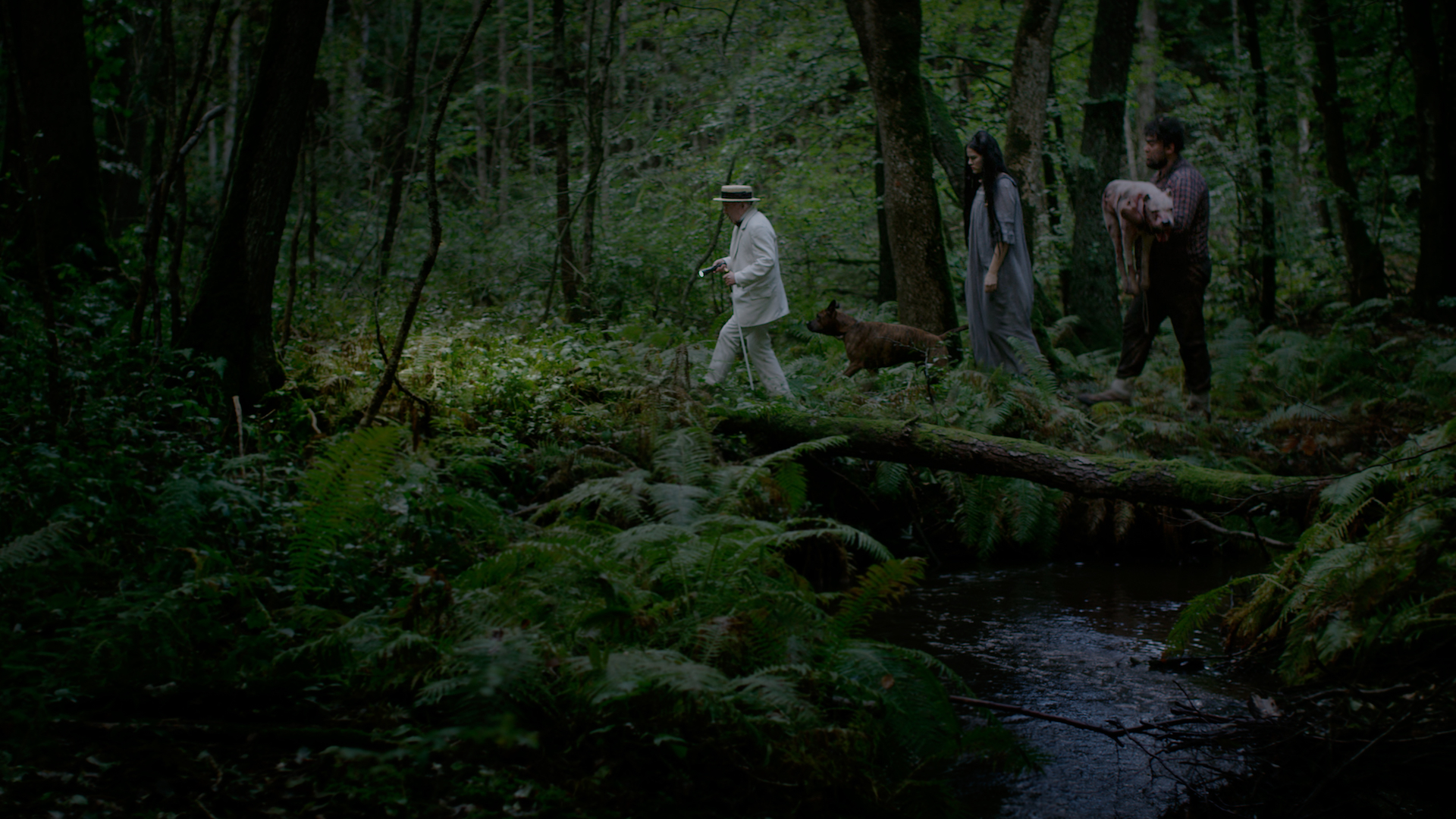
What a strange little arthouse horror flick Koko-di Koko-da is. What starts out as a relatively straight-forward tale of a once-happy family trying to maintain a sense of worth before breaking down entirely, quickly descends into an experiment of madness, one that is often repetitive and unlikeable but no less inherently fascinating.
The aforementioned once-happy family consists of husband and wife Tobias (Leif Edlund) and Elin (Yiva Gallon) who tragically lose their daughter whilst staying overnight in hospital to treat an allergic reaction Elin has violently had after eating shellfish; the use of an abrupt end to the scene – something writer/director Johannes Nyholm injects into the film often – only strengthens its emotional reaction.
Understandably scarred and shaken by this tragedy, the relationship between Tobias and Elin slowly deteriorates and when Koko-di Koko-da re-emerges from its blackout screen the pair are preparing a camping trip, one that will similarly be marred by tragedy.
Though Koko-di Koko-da could’ve simply been another forest-set horror outing where an unsuspecting couple are stalked by a series of deranged creations, Nyholm opts for something far more horrific and off-kilter, and his intention to warp expectation is evident from the very first frame where the film’s villains – a trio of unsettling characters; one a strongman carrying a dead pig, another an expressionless girl walking a savage dog, the other the seeming ringleader performing the unnerving nursery rhyme which makes up the film’s title – roam through the misty woods seemingly ready for their prey.
As Tobias and Elin are both attacked (these scenes not overly violent but nonetheless unsettling), time resets and they are subjected to torture on a constant loop, with Tobias gradually growing aware of the impending danger and trying his hardest to thwart the inevitable; the reasoning for the tragic action constantly taking place an evident manifestation of the loop of blame they each harbour for each other over the death of their daughter.
As deep as the film aims to be though, the meaning behind each action is never fully resolved, more just implied, and Nyholm’s decision to paint Tobias as a truly unlikeable character – he often cowers in the attack scenes leaving his wife to die first – means we as an audience feel a disconnect as our emotions are severed, despite feeling for him initially following the loss of his child.
Whilst Koko-di Koko-da may not always entirely work, it’s never less than fascinating, and former Danish pop singer Peter Belli as the unnerving ringleader (his sing-song delivery is almost vile) is particularly effective in a film that should satisfy enthusiasts of surreal, narratively-defunct horrors, but be a cautionary visit for anyone else seeking a story presented in a straight-forward manner.
![]()
![]()
![]()
![]()
![]()
THREE STARS (OUT OF FIVE)
Koko-di Koko-da is currently screening as part of this year’s Fantastic Fest (September 19th – 26th, Texas) with a US theatrical release (Los Angeles & New York) to follow in November.
